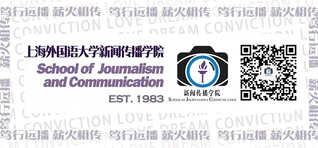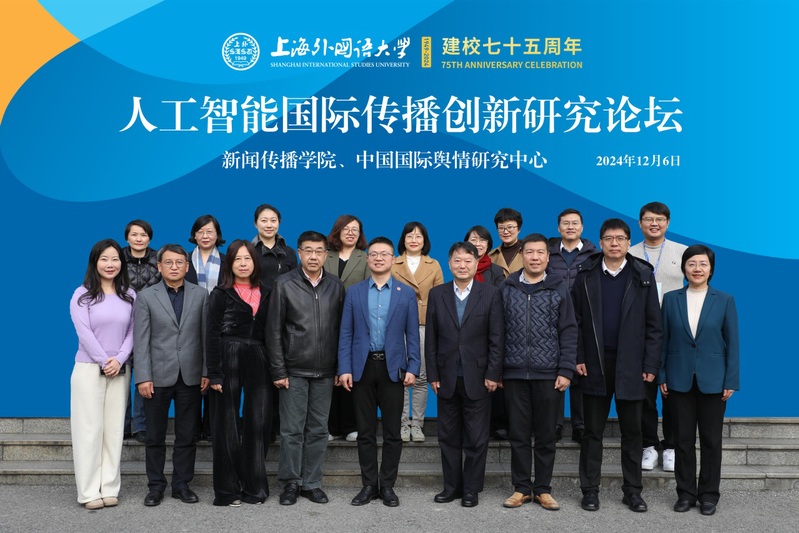
Written by Sun Weihang, He Xinyi, Lyu Yuhao, Yang Xinzhuo
Photography by Pan Yingying, Lyu Yuhao, Zuo Zhenwei
Translated by Guo Yishun
In celebration of the 75th anniversary of Shanghai International Studies University (SISU), the “AI and Innovation in International Communication Research Forum” was held on December 6 at the International Conference Center on SISU’s Hongkou Campus. The event, organized by SISU and hosted by the School of Journalism and Communication (SJC), was co-organized by the China International Public Opinion Research Center. The forum brought together over ten experts and scholars to discuss the evolving landscape of international communication in the age of artificial intelligence (AI).
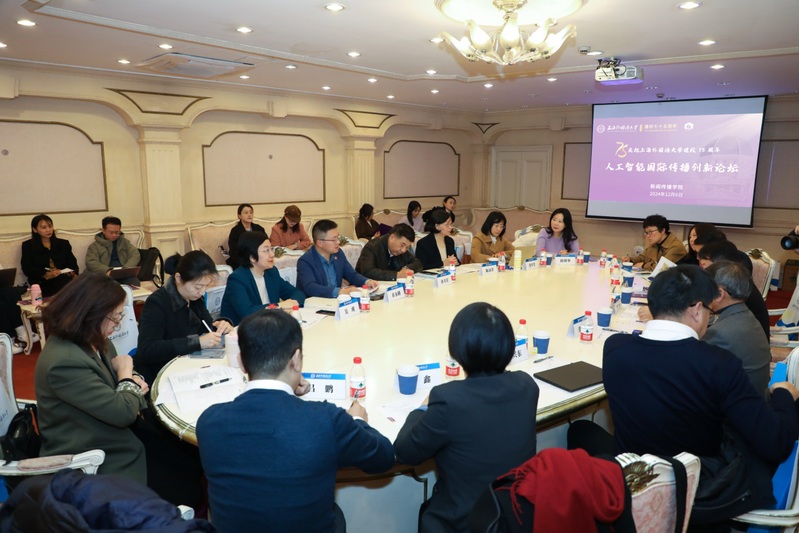
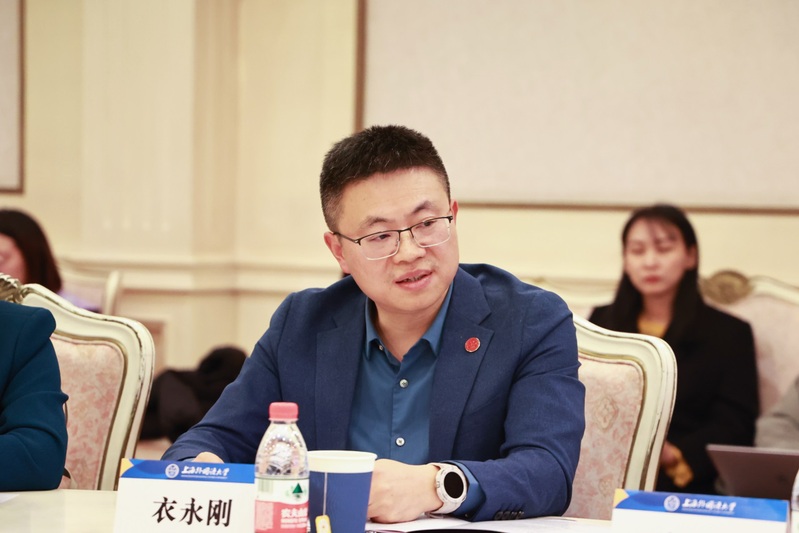
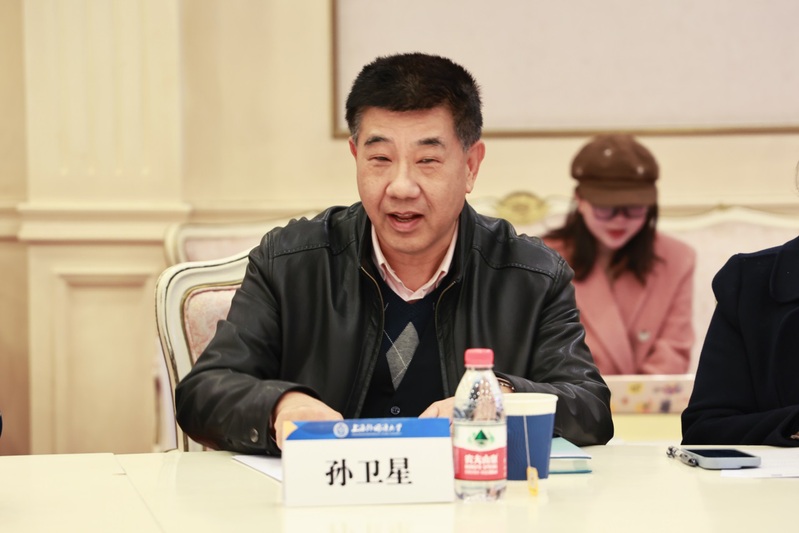
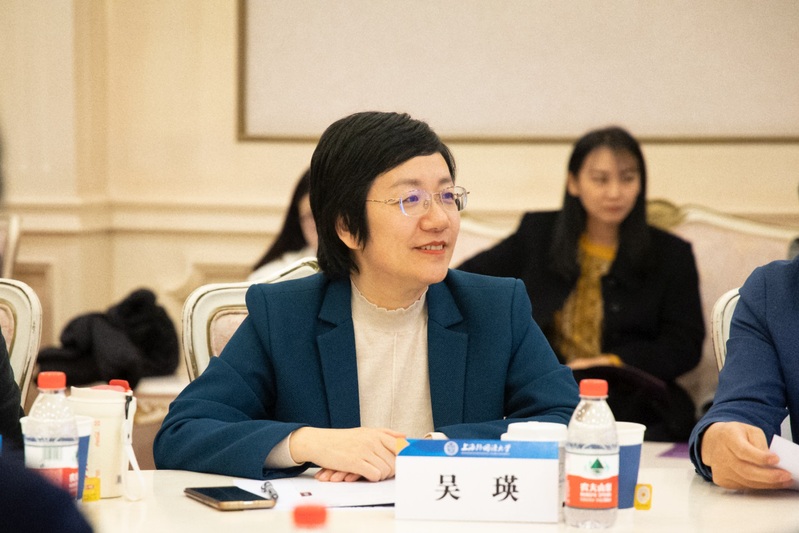
The opening ceremony was attended by Sun Weixing, Director of the Publicity Department of the CPC Shanghai Municipal Committee’s University Cooperation Office. Wu Ying, Dean of SJC, hosted the session.
In his welcome address, Vice President of SISU Yi Yonggang emphasized the transformative impact of AI on the media ecosystem. He highlighted that the shift from language-based to multi-modal communication, coupled with the transition from single-language to multi-language academic development, marks a new era for international communication. Yi stressed that future academic efforts must keep pace with these technological advancements, leveraging AI to seize emerging opportunities.
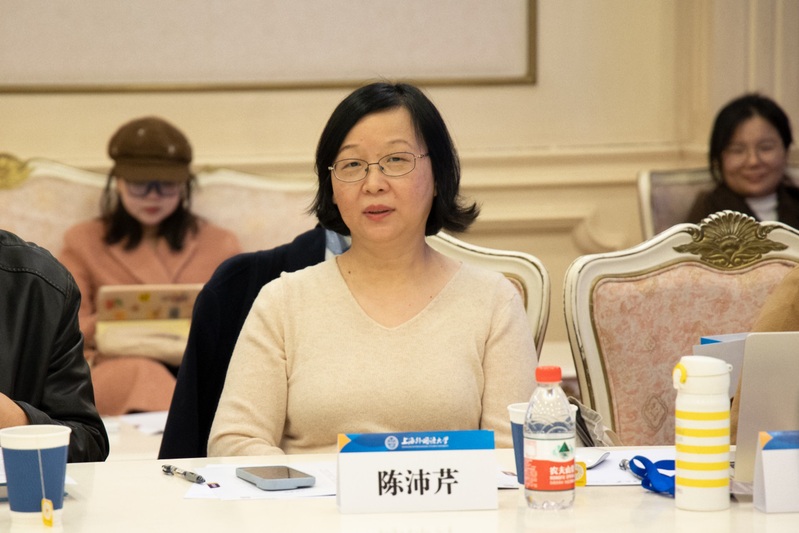
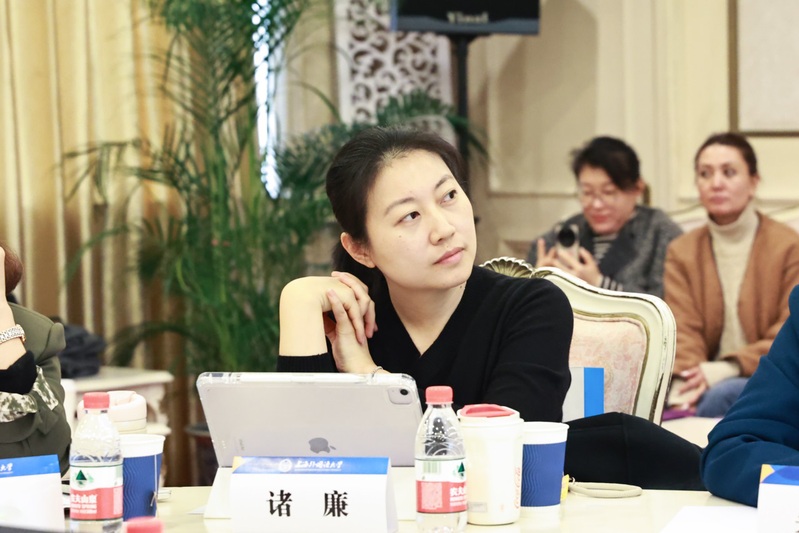
The forum’s guest speech session, moderated by Professors Chen Peiqin and Zhu Lian from SJC, featured a diverse group of experts offering unique perspectives on AI’s influence on international communication.
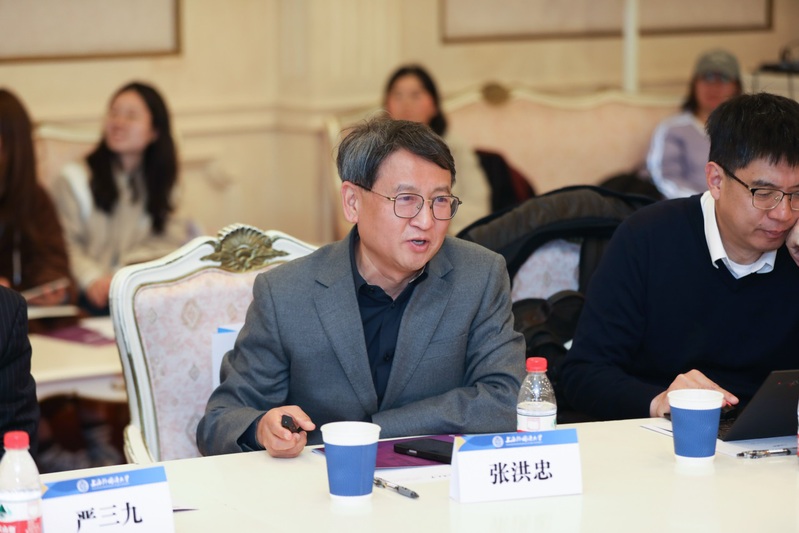
Professor Zhang Hongzhong, Dean of the School of Journalism and Communication at Beijing Normal University, discussed AI’s large language models as a technological breakthrough that lays the foundation for the next-generation internet. He argued that these models will redefine international communication through three key aspects: content supply, culture, and users.
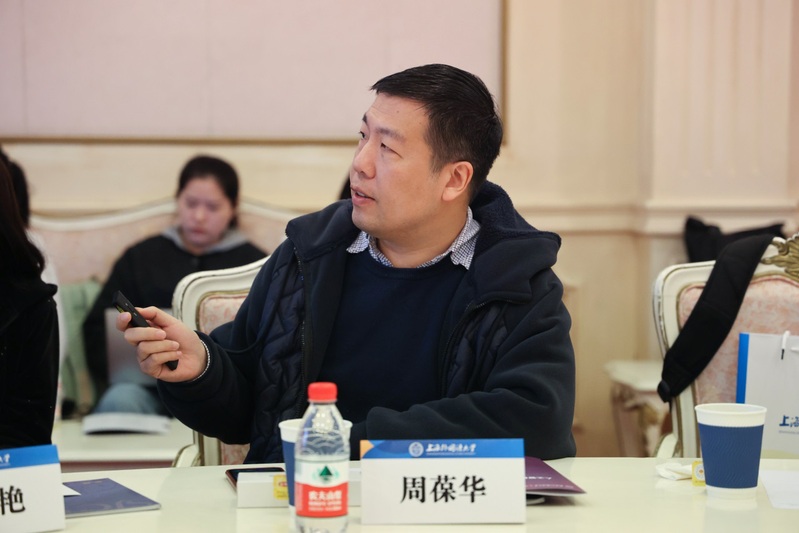
Professor Zhou Baohua, Vice Dean of the School of Journalism at Fudan University, explored AI large language models as the new infrastructure for public opinion. He raised concerns about how these models might reinforce stereotypes and perpetuate global inequalities, emphasizing the need for critical engagement with AI-generated content.
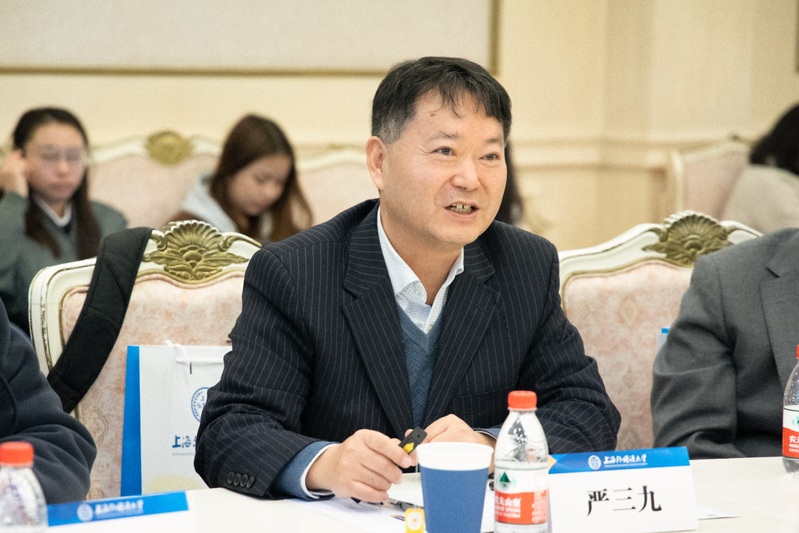
Professor Yan Sanjiu, Dean of the School of Journalism and Communication at Shanghai University, highlighted the growing importance of short videos in international communication. He proposed three strategies for leveraging short videos: shifting from rational narration to storytelling, innovating with diverse themes and formats, and creating a more interactive and integrated communication ecosystem for younger audiences.
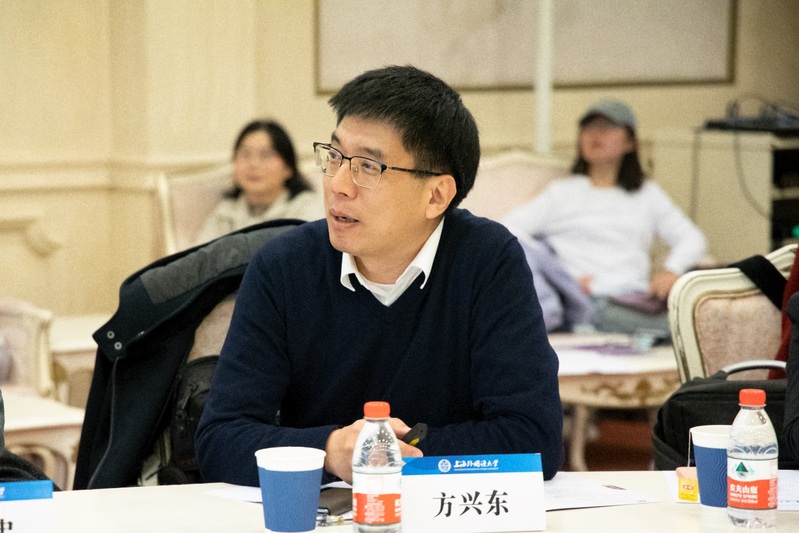
Professor Fang Xingdong, Executive Vice Dean of College of Media and International Culture at Zhejiang University, shared insights from the “Intelligent International Communication Strategy” of Zhejiang University. He emphasized the vital role of international communication in the current societal context, advocating for the use of AI and intelligent media to drive national strategy, industrial innovation, and academic research.
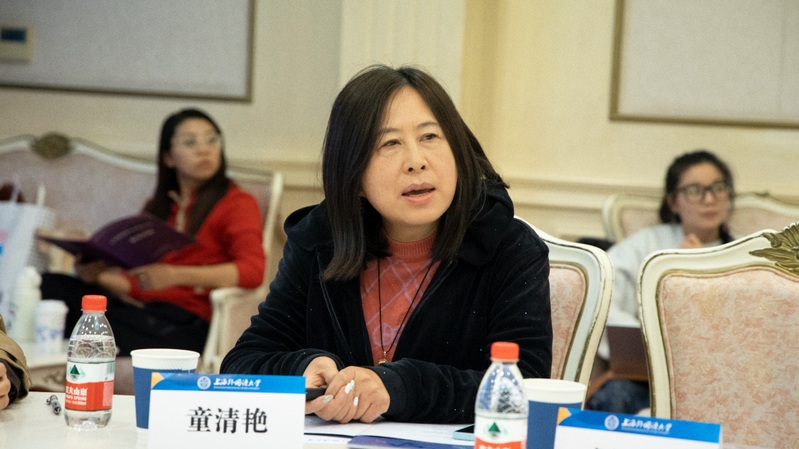
Tenured professor Tong Qingyan at School of Media and Communication of Shanghai Jiao Tong University, examined the psychological implications of AI. She warned that the humanization of AI systems could evoke negative emotions such as anxiety and fear, which might influence users’ behavior and impact their trust in these technologies.
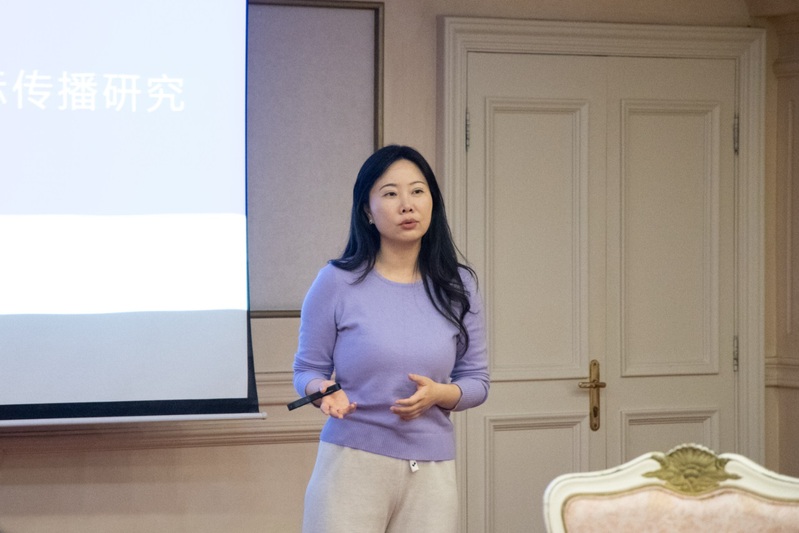
Professor Xu Minghua, from the Journalism and Information Communication School of Huazhong University of Science and Technology, discussed cognitive empathy in international communication. She argued that AI should enhance, not replace, human-centered approaches to communication, emphasizing the importance of emotional intelligence and audience cognition in shaping China’s national image on the global stage.
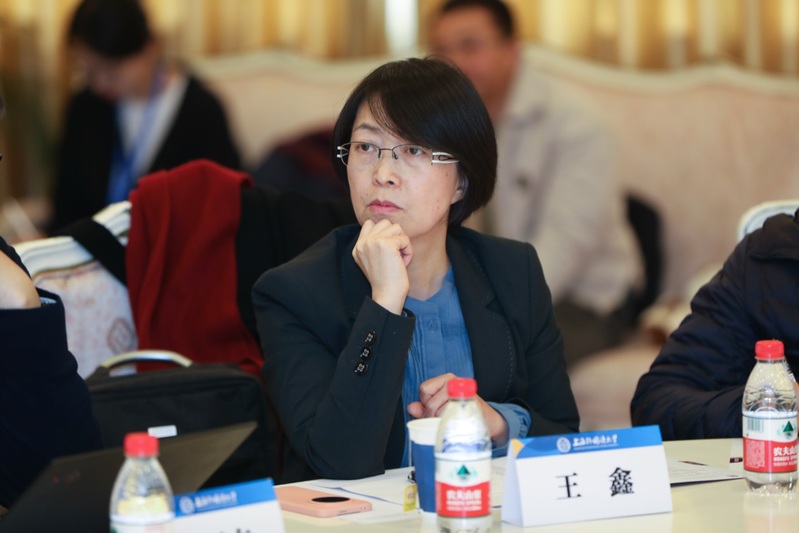
Professor Wang Xin, from the College of Arts and Media of Tongji University, explored how AI is reshaping international politics and communication. She proposed strategies for AI-powered international communication, including mutual understanding and virtual-real integration, to promote a more harmonious and inclusive global discourse.
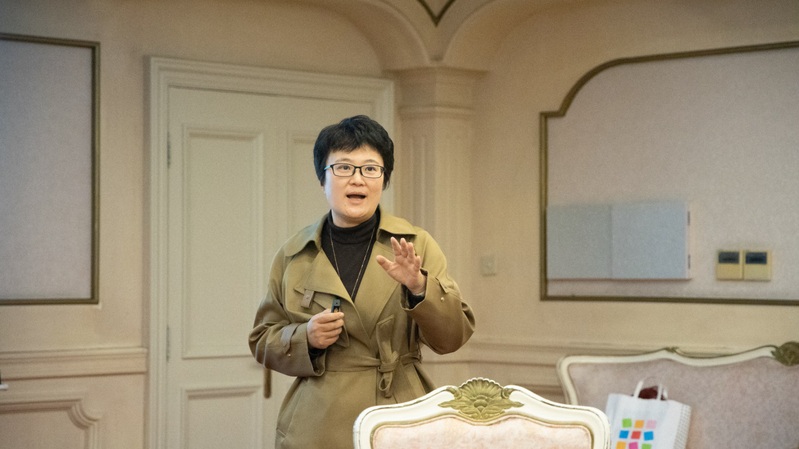
Professor Yu Jing, Vice Dean of School of Communication of East China Normal University, pointed out that “stance,” also referred to as “position” or “attitude,” is a concentrated reflection of the subjective meaning in language, emphasizing the social nature and communicative intent of stance. She mentioned that through the use of prompt engineering and fine-tuning instructions, the accuracy and interpretability of stance analysis can be significantly improved. She also stressed the importance of considering diverse knowledge and comprehensive understanding in stance analysis, as well as the need for higher-level reasoning to address complex goals.
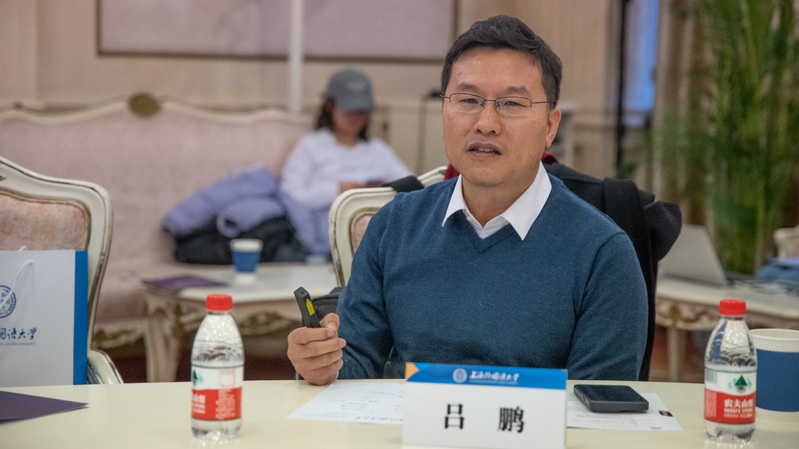
Research Professor Lyu Peng, from the Journalism Institute at the Chinese Academy of Social Sciences, advocated for a “human-centered” approach to international communication. He pointed out the challenges of balancing technological methods with effective communication, stressing the need to focus on both the communicator and the audience to avoid purely technical approaches.
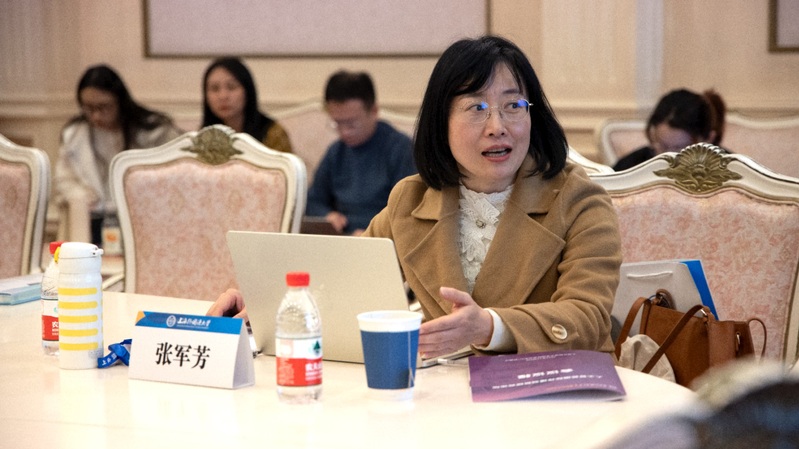
Professor Zhang Junfang, from SJC, addressed the evolving nature of human-machine communication. She proposed that evaluating machine intelligence should consider whether the interaction feels indistinguishable from human-to-human communication, suggesting a need for a new framework that positions AI as an active participant in communication.
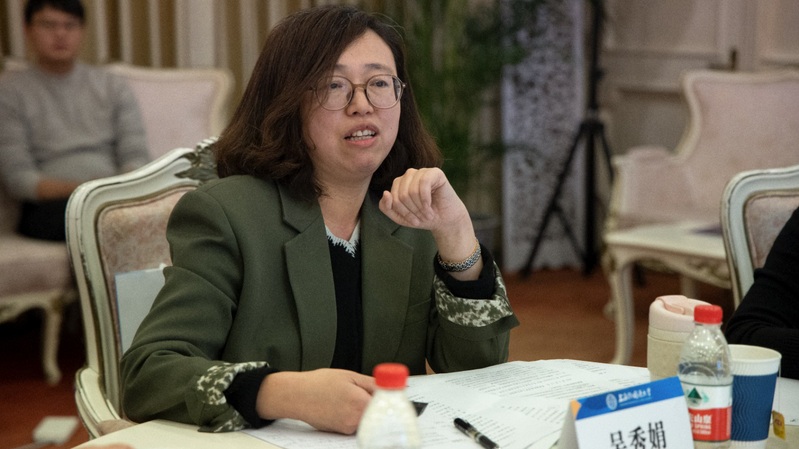
Professor Wu Xiujuan, Vice Dean of SJC, highlighted the increasing risks associated with AI in international political communication. She called for enhanced AI literacy, improved data security, and the development of digital skills to navigate the challenges posed by AI technologies in this field.
At the close of the forum, Dean Wu Ying expressed gratitude to the experts for their insightful presentations. She emphasized the importance of continued collaboration between SISU and other academic institutions to explore the integration of AI in international communication research, fostering innovation and promoting China’s global narrative.

 |Hongkou Campus|550 Dalian Road (W), Shanghai 200083, China |Songjiang Campus|1550 Wenxiang Road, Shanghai 201620, China
|Hongkou Campus|550 Dalian Road (W), Shanghai 200083, China |Songjiang Campus|1550 Wenxiang Road, Shanghai 201620, China